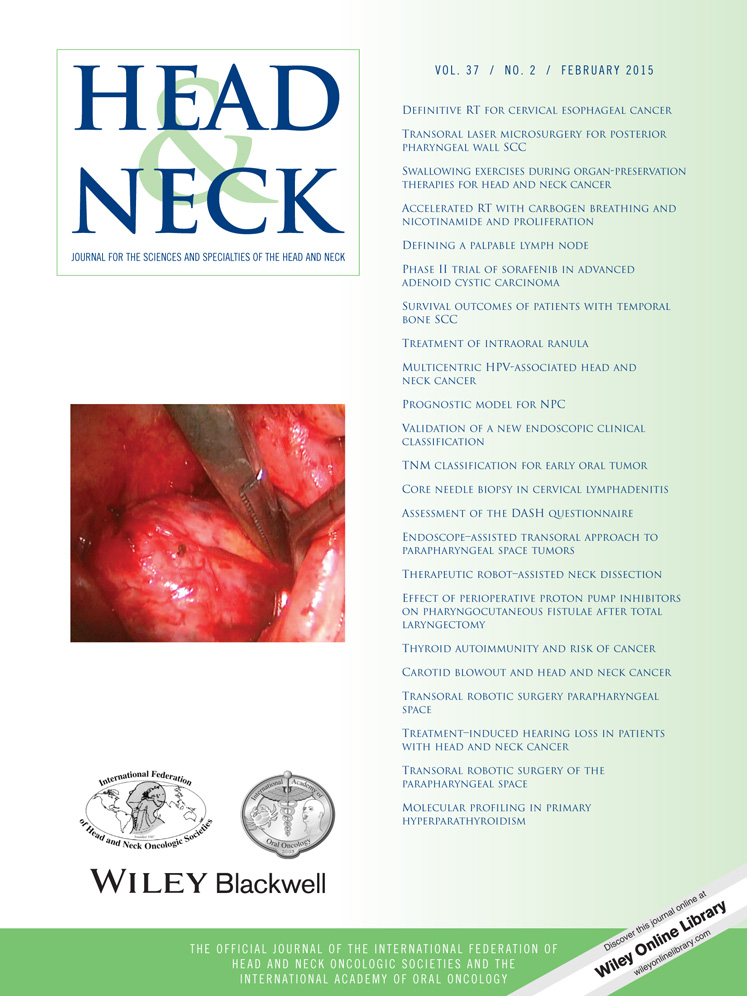Treatment of intraoral ranulas with micromarsupialization: Clinical outcomes and safety from a phase II clinical trial
ABSTRACT
Background
Micromarsupialization of an oral ranula has been introduced to clinical practice. However, the technical feasibility, indications, and safety of the procedure were not fully studied. In this study, we report the results of a prospective phase II clinical trial to evaluate the clinical outcomes.
Methods
Twenty patients diagnosed with oral ranula were enrolled in this trial. The ranulas were confirmed by oral examination and CT scans. We implemented micromarsupialization on the patients after receiving their consent. We evaluated the clinical outcomes and complications related to this procedure for longer than a 12-month period.
Results
All patients showed resolution after the first micromarsupialization, after which 5 patients developed a recurrence that required revision micromarsupialization. Six months later, only 2 patients showed recurrence, requiring resection of the ranula and sublingual gland.
Conclusion
Micromarsupialization can be a very effective and safe approach as an initial treatment for intraoral ranula. © 2014 Wiley Periodicals, Inc. Head Neck 37: 197-201, 2015




